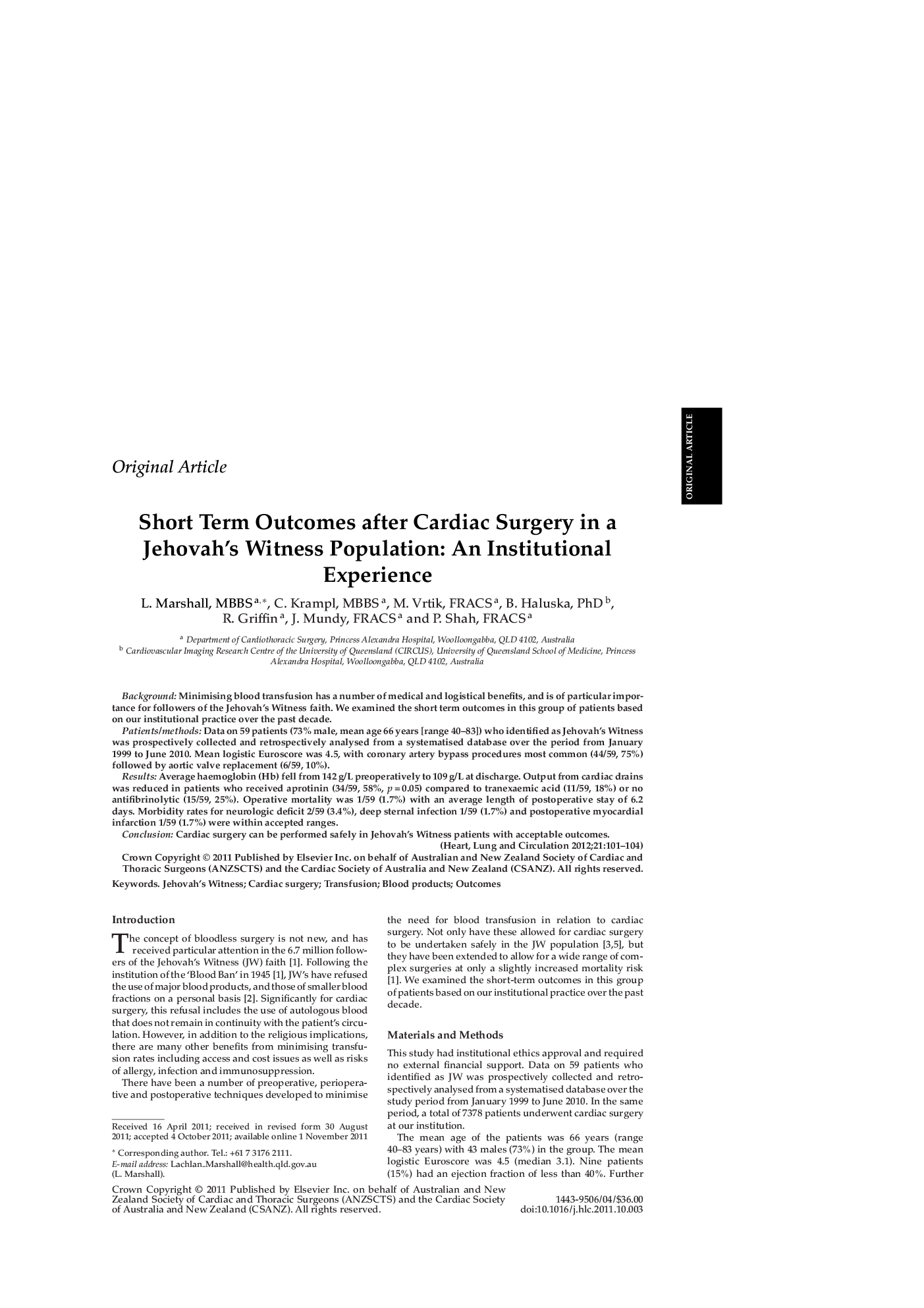| Article ID | Journal | Published Year | Pages | File Type |
|---|---|---|---|---|
| 2919978 | Heart, Lung and Circulation | 2012 | 4 Pages |
BackgroundMinimising blood transfusion has a number of medical and logistical benefits, and is of particular importance for followers of the Jehovah's Witness faith. We examined the short term outcomes in this group of patients based on our institutional practice over the past decade.Patients/methodsData on 59 patients (73% male, mean age 66 years [range 40–83]) who identified as Jehovah's Witness was prospectively collected and retrospectively analysed from a systematised database over the period from January 1999 to June 2010. Mean logistic Euroscore was 4.5, with coronary artery bypass procedures most common (44/59, 75%) followed by aortic valve replacement (6/59, 10%).ResultsAverage haemoglobin (Hb) fell from 142 g/L preoperatively to 109 g/L at discharge. Output from cardiac drains was reduced in patients who received aprotinin (34/59, 58%, p = 0.05) compared to tranexaemic acid (11/59, 18%) or no antifibrinolytic (15/59, 25%). Operative mortality was 1/59 (1.7%) with an average length of postoperative stay of 6.2 days. Morbidity rates for neurologic deficit 2/59 (3.4%), deep sternal infection 1/59 (1.7%) and postoperative myocardial infarction 1/59 (1.7%) were within accepted ranges.ConclusionCardiac surgery can be performed safely in Jehovah's Witness patients with acceptable outcomes.
